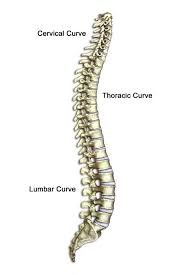记忆方法
1. spike => spine.
中文词源
spine 脊柱,脊椎,刺,刺毛
来自拉丁语 spina,脊柱,脊椎,尖刺,来自 PIE*spei,刺,尖刺,词源同 spike,spire.
英语词源
- spine
-
spine: [14] Spine comes via Old French espine from Latin spīna ‘thorn’, which was probably derived from the same base as spīca ‘ear of corn’ (source of English spike ‘pointed flower head’). The metaphorical extension ‘backbone’ developed in Latin, perhaps via ‘prickle’ and ‘fish bone’. A spinney [16] is etymologically a ‘thorny thicket’. The word comes via Old French espinei from Vulgar Latin *spīnēta, an alteration of Latin spīnētum ‘thorny hedge’, which was derived from spīna.
=> spike, spinney - spine (n.)
- c. 1400, "backbone," later "thornlike part" (early 15c.), from Old French espine "thorn, prickle; backbone, spine" (12c., Modern French épine), from Latin spina "backbone," originally "thorn, prickle" (figuratively, in plural, "difficulties, perplexities"), from PIE *spe-ina-, from root *spei- "sharp point" (see spike (n.1)). Meaning "the back of a book" is first attested 1922.
权威例句
- 1. He felt the hardness of the iron railing press against his spine.
- 他感觉到硬邦邦的铁栏杆顶着自己的脊梁。
- 2. This movement lengthens your spine and tones the spinal nerves.
- 这一动作舒展脊椎,使脊神经更加强健。
- 3. Her spine curved.
- 她的脊柱弯曲了。
- 4. The emptiness here sent shivers down my spine.
- 这里的空寂让我脊梁骨发凉。
- 5. He suffered from curvature of the spine.
- 脊柱弯曲使他痛苦不堪。

